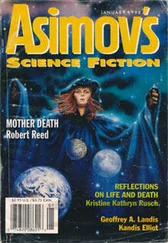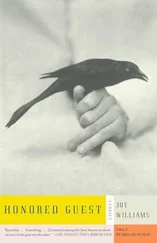Joy Williams - Taking Care
Здесь есть возможность читать онлайн «Joy Williams - Taking Care» весь текст электронной книги совершенно бесплатно (целиком полную версию без сокращений). В некоторых случаях можно слушать аудио, скачать через торрент в формате fb2 и присутствует краткое содержание. Год выпуска: 2010, Издательство: Vintage, Жанр: Современная проза, на английском языке. Описание произведения, (предисловие) а так же отзывы посетителей доступны на портале библиотеки ЛибКат.
- Название:Taking Care
- Автор:
- Издательство:Vintage
- Жанр:
- Год:2010
- ISBN:нет данных
- Рейтинг книги:5 / 5. Голосов: 1
-
Избранное:Добавить в избранное
- Отзывы:
-
Ваша оценка:
- 100
- 1
- 2
- 3
- 4
- 5
Taking Care: краткое содержание, описание и аннотация
Предлагаем к чтению аннотацию, описание, краткое содержание или предисловие (зависит от того, что написал сам автор книги «Taking Care»). Если вы не нашли необходимую информацию о книге — напишите в комментариях, мы постараемся отыскать её.
Taking Care — читать онлайн бесплатно полную книгу (весь текст) целиком
Ниже представлен текст книги, разбитый по страницам. Система сохранения места последней прочитанной страницы, позволяет с удобством читать онлайн бесплатно книгу «Taking Care», без необходимости каждый раз заново искать на чём Вы остановились. Поставьте закладку, и сможете в любой момент перейти на страницу, на которой закончили чтение.
Интервал:
Закладка:
Debevoise was clamping a sunlamp above his bed. He turned it on and then lay on his back with his hands beneath his head. The bulb hung over him blankly for a moment and then lit shrilly. Almost at the same instant, the door of the house opened and a flashlight beam bored over the field. Judy gave a small shriek and pushed herself backward against the tree trunk.
“Who’s there!” a man demanded. “I know you’re there.” Behind the voice was a pink hallway, an old woman standing in a shawl, her hand in a fist moving across her mouth. There seemed deadening light everywhere. The sea and snow and sunlamp and now the old man walking toward them. The girls knelt beneath the tree like jacked deer.
“Don’t go over there, Ernest,” the old woman said.
The man stopped and moved the light in a wide arc. “It ain’t the first time you been here. You come out or there’s going to be trouble.”
“Ernest,” the old woman said fretfully, turning the porch light off and on as though she were guiding in a ship. Judy and Julep bolted, stumbling across the field, spinning off tree limbs, their hands over their faces. “Hey!” they heard behind them. “Hey! You get outta here.”
Julep was sick for three weeks and never moved from the bed. She could hear children on their horses, cantering in the streets. She could hear the plows. She drank soup and sniffed herself beneath the damp bedclothes. She felt that she was an exceedingly fragile organism lying beneath complex layers of mulch. Her face was shrunken and without structure, as though something were burning it up and coring it out from within. The snow fell eternally out of a withered sky, and inside, Julep, beyond the range of dream or reasoning, continued to burn.
She couldn’t decide if it had been coming for a long time and she had just gotten in the way of it or if it had always been there with her and she had just recognized it.
Ever since the afternoon of the basketball game, she could not remember how she had once regarded Debevoise. He was the pain and the heat of her head, and no longer something she could think about.
Judy also could not bear to think about Debevoise. It frightened her to think they might be caught. Everyone would think she was queer. The girls would laugh and the boys would take advantage of her whereas now they fought over her and loved her and were half scared to death of her. She was glad that Julep was sick and they didn’t have to sit around in the snow. She would never admit that she was being cautious or afraid, but she would tell Julep after she got well that she was bored and had learned everything she wanted to know about Debevoise.
Judy would come to visit Julep but didn’t like to look at her. Once, Judy said, “He asked about you, you know.”
Julep smiled politely and studied the hem of her sheet.
“He asked if you had moved and I said no, you were sick and then he said girls keep themselves too skinny these days as a fashion and they don’t eat the right foods and get sick.”
When Julep returned to school, everything was tiny, as in a dream, and moving with blinding speed. She could not keep up with it all, her muscles, resting for so long, were useless for anything. In the laboratory, she spilled potassium permanganate, staining her hands a deep brown. She watched her hands accompany her now like a dark disease, like a man’s hands, soaked and sordid.
She felt cold.
Julep went out now alone to watch Debevoise. Judy was surprised and she became defensive and intrigued, imagining that Julep was at last succeeding in something they had not been able to accomplish together.
“I can’t imagine anything going on that we haven’t already seen,” she said peevishly. “The only thing that could happen is if one of us got up there in that room right with him and we were looking out of that window instead of looking into it. You’re going to get sick out there and freeze and go unconscious.”
Julep looked at her wrecked hands and rubbed at them briefly with a piece of flannel she had started to carry around with her.
Judy was suspicious. She worried that something interesting had happened. “You’ve got to have somebody caring for you all the time,” she said. “I’m going to go with you one more time but then I’m never going again and I’m going to stop you from going out too.” How she would do this last thing, she didn’t know. She could tell on Julep, she supposed. That would stop it all dead. She looked on Julep righteously and Julep looked back.
The night was black, moonless and starless, with only the snow shining dully with its own light, and the ice hanging in webs from the trees. They walked with their hands strung out in front of their faces and their elbows sticking out, shuffling a little so they wouldn’t trip.
The ground was ice-buckled and with hollows. Judy’s knees dipped and, jaw joggling, she bit her tongue. She had fallen out of practice, out of step with the land and her reason for being on it. Julep walked steadily ahead and Judy followed, somewhere in a movie war, a lusted-after orphan, in full bloom and in danger all the time. If only Julep had imagination, she thought, she wouldn’t get so involved in things.
They settled down beside the tree, in a new and deeper ditch, with a stone base and the sides smooth ice, alarmingly, impossibly, like a home.
The second floor was in darkness.
“He’s not even here,” Judy said accusingly.
Julep’s grainy face stuck out of her wool wrappings. “He’s here,” she said.
“Well, what’s he doing in the dark!” Judy shouted. “Have you been watching him do something in the dark?” She was getting angry. They crouched in a cloud of her perfume. She felt like throttling Julep, who was tilted slightly toward her, in a trance and satisfied, dumb and patient. She looked toward the house, feeling Debevoise moving thunderously in the dark and making no sense to her. She was getting so angry she thought she would bust. She gave a little squeal and stamped her feet, then stood up and started to make her way back across the field. She was moving fast, kicking her feet out in front of her, moving so fast that she thought when she felt her boots sliding away that she could still catch up with them before she fell, but her legs kept moving forward while the rest of her slid back and she tipped over with a crack.
She lay there whimpering. Unlike Julep, she had never hurt herself in her life. She had never been bruised or sick or burnt and nothing had ever broken. She remained on her back, prodding herself gently, singing to herself in a little girl’s voice. She was suddenly pulled roughly to her feet and shaken hard. Debevoise had grabbed her by the coat front and was pushing her back and forth, pinching her breasts, pushing and pulling at her as though to a music beat, his face riding from side to side only inches in front of her, as though it was his head that was wagging and not her own. His face was raging. It seemed on the verge of flying apart. He was saying several simple words to her but she could not seem to understand them. He would propel her back as he said each word and then yank her toward him in the silence between the words and it was as though someone was turning a radio on and off.
Then she simply stopped rocking and with his hands still on her coat, he toppled toward her, turning her slightly to the left as he fell so that they both sank side by side in the snow. His head settled and then broke slowly through a crust of ice. One eye filled up with snow while the other continued to stare at her.
Julep, a rock in each hand, took several steps forward and knelt beside him. There were two wounds in the back of his well-shaped head. She raised her hands again, dropping them with a slow, hard force against his skull. They made almost no sound. The eye that was still staring at Judy seemed to shake. His mouth was closed tightly but there was blood coming from between his lips. Judy pushed herself away. His hands remained on her coat, but then dropped off as she crept backward to a tree which she clung to, whimpering.
Читать дальшеИнтервал:
Закладка:
Похожие книги на «Taking Care»
Представляем Вашему вниманию похожие книги на «Taking Care» списком для выбора. Мы отобрали схожую по названию и смыслу литературу в надежде предоставить читателям больше вариантов отыскать новые, интересные, ещё непрочитанные произведения.
Обсуждение, отзывы о книге «Taking Care» и просто собственные мнения читателей. Оставьте ваши комментарии, напишите, что Вы думаете о произведении, его смысле или главных героях. Укажите что конкретно понравилось, а что нет, и почему Вы так считаете.












